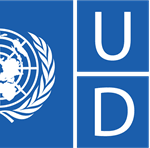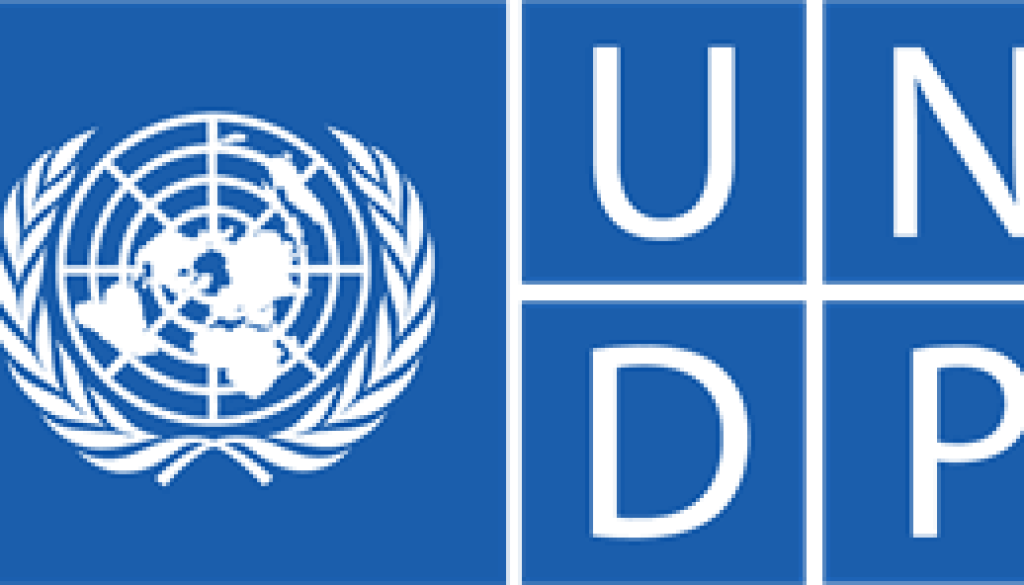Programme Analyst-Crisis Preparedness and Response Vacancy-Job Ref: ECUSUNDP/1124/2023234

UNDP
Programme Analyst – Crisis Preparedness and Response Vacancy-Job Ref: ECUSUNDP/1124/2023234
New York (United States)
JOB DESCRIPTION
Diversity, Equity and Inclusion are core principles at UNDP: we value diversity as an expression of the multiplicity of nations and cultures where we operate, we foster inclusion as a way of ensuring all personnel are empowered to contribute to our mission, and we ensure equity and fairness in all our actions.
Taking a ‘leave no one behind’ approach to our diversity efforts means increasing representation of underserved populations. People who identify as belonging to marginalized or excluded populations are strongly encouraged to apply. Learn more about working at UNDP including our values and inspiring stories.
UNDP does not tolerate sexual exploitation and abuse, any kind of harassment, including sexual harassment, and discrimination. All selected candidates will, therefore, undergo rigorous reference and background checks.
Office/Unit/Project Description
UNDP is the knowledge frontier organization for sustainable development in the UN Development System and serves as the integrator for collective action to realize the Sustainable Development Goals (SDGs). UNDP’s policy work carried out at HQ, Regional and Country Office (CO) levels, forms a contiguous spectrum of deep local knowledge to cutting-edge global perspectives and advocacy.
In this context, UNDP invests in the Global Policy Network (GPN), a network of field-based and global technical expertise across a wide range of knowledge domains and in support of the signature solutions and organizational capabilities envisioned in the Strategic Plan. Within the GPN, the Crisis Bureau (CB) guides UNDP’s corporate crisis-related strategies and vision for crisis prevention, response and recovery and lead corporate support in response to crisis. To fulfil its mandate, the CB is committed to investing in developing reliable capacities that can be rapidly deployed to COs.
Within the CB, support to country operations is coordinated by the Country Support Management Team (CSMT), working closely with other teams within the GPN. The overall goal of the CSMT is to ensure strong, coherent, and coordinated support to country offices (COs), as it relates to crisis and fragility, within the full spectrum of the GPN’s service offer.
The CSMT steers the effective interaction of GPN Teams, Regional Bureau/Regional Hub and CO counterparts for integrated country support. It ensures that UNDP corporate support is provided before, during and after crises. It also supports and coordinates the GPN crisis response capacity and takes the lead in a UNDP-wide approach to strengthen UNDP capacity in preventing, preparing for, responding to, and recovering from crisis.
Since 2006, the SURGE mechanism (Learning + Crisis Response + Deployments) has been the CB’s signature solution to supporting COs through crisis situations, by providing the right expertise at the right time. It is recognized as not only an important resource for COs, but an experiential learning mechanism for crisis personnel in UNDP. Building on the success of the SURGE Academy model, the Crisis Academy was launched in 2022 as a robust people-centred knowledge and learning system to equip and enhance readiness of country-level leadership and practitioners to deal with the complexity of crisis contexts.
In this context and to prepare for, respond to, and support recovery from major crises, UNDP Country Offices (COs) have often to meet multiple demands and pressures in addition to their usual workload. Under these circumstances, COs often have a critical need for additional capacity, knowledge and experience to help them meet these demands and facilitate essential roles in these areas. To address these needs, CSMT works closely with COs to deepen UNDP internal capacities together through both the capacity building and Deployments schemes which offers several deployable capacities that can be drawn upon, including SURGE Advisors, and external experts from the GPN/ExpRes roster and Stand-by Partners.
Scope of Work
Under the overall supervision of the CSMT Programme Specialist/ Crisis Preparedness and Learning the Programme Analyst will be responsible for effectively and efficiently supporting the maintenance of the crisis preparedness & response systems and mechanisms including contributing to developing tools, corporate capacity development content and operations.
Summary of key functions:
Maintenance support of the crisis response systems and mechanisms including Surge Portal, Surge Sharepoint and After-Action Reviews dashboard, etc
Operational support to ensure smooth running and delivery of preparedness and Surge workshops
Contribute to the overall CSMT Operations to ensure smooth running and functioning of different units within CSMT
a)Support maintenance of the crisis response systems and mechanisms including Surge Portal, Surge Sharepoint and After-Action Reviews dashboard, etc
Support updating the data and accessibility of corporate crisis response tools such as SURGE Portal, After Action Reviews dashboard and ExpRes Roster;
Support efforts of development and utilization of post-crisis signature products including the Crisis Response Packages;
Continuously support COs crisis preparedness efforts including preparatory work for Crisis Readiness Workshops along with post-workshops documentation;
Support monitoring of progress on utilization of crisis response mechanisms and compliance with corporate policies and procedures;
Support the internal reporting among the team and prepare minutes of the meeting and share with the team;
b)Ensure operational support to ensure smooth running and delivery of preparedness and Surge workshops.
Operations (administrative and financial) support for the planning, development and delivery of Surge and Preparedness workshops across different time zones and languages (as needed).
Logistical support to coordinate feedback sessions with technical experts as needed.
Support Surge workshops and webinars with integrating feedback and recommendations received after workshops for future workshops
Manage virtual logistics for set-up, execution of events and meetings for Surge Training
Electronically file all relevant documents in Sharepoint/ MS Teams libraries
Support the implementation of systems that align to Surge mechanism
Support in maintaining the monitoring and reporting system of the Surge Training, involving regular updates to the dataset used for reporting and implementing communication and outreach strategies.
c)Contribute to the verall CSMT Operations to ensure smooth running and functioning of different units within CSMT
Liaise closely with the relevant operations unit to support staff and consultants receive airfare and DSA, and required visas;
Follow-up with HQ operations and travel support units to ensure that approvals of all related requisitions, POs and vouchers from HQ, RH and Country Offices are issued in a timely basis;
Process contract amendments (IC and IPSA), process payments and submit documents for approval;
Produce and distribute note to files, memos, minutes of meetings related to procurement process or any other related processes;
Monitor monthly invoices for several apps (licenses) and process payments for those apps;
Liaise with the ICT for onboarding of new staff: email creation requests (follow-up, troubleshooting, etc);
Support implementation of document management systems (Sharepoint/ MS Teams libraries) to ensure all documents are up to date and easily accessible by CSMT personnel;
d)Facilitate knowledge and capacity building, knowledge sharing and advocacy relevant to the assigned thematic area(s).
Organize training, workshops, and capacity building activities in a consultative manner, involving technical experts and stakeholders that may include the government, private sector, NGOs, donors, and/or academia.
Identify, synthesize and document best practices and lessons learned that are generated from the project and implementing partners.
Participate in and ensure sound contributions to knowledge networks and communities of practice on project related issues. Support establishment of knowledge platforms for the project, facilitate innovative mechanisms for dissemination of knowledge from the project, and develop knowledge resources and products to share with project partners and to support UNDP’s engagement in this area.
The incumbent performs other duties within their functional profile as deemed necessary for the efficient functioning of the Office and the Organization
Institutional Arrangement
The Programme Analyst will have dual reporting lines to; the CSMT Programme Specialist/ Crisis Preparedness and the Crisis Response.
Competencies
Core
Achieve Results: LEVEL 1: Plans and monitors own work, pays attention to details, delivers quality work by deadline
Think Innovatively: LEVEL 1: Open to creative ideas/known risks, is pragmatic problem solver, makes improvements
Learn Continuously: LEVEL 1: Open minded and curious, shares knowledge, learns from mistakes, asks for feedback
Adapt with Agility: LEVEL 1: Adapts to change, constructively handles ambiguity/uncertainty, is flexible
Act with Determination: LEVEL 1: Shows drive and motivation, able to deliver calmly in face of adversity, confident
Engage and Partner: LEVEL 1: Demonstrates compassion/understanding towards others, forms positive relationships
Enable Diversity and Inclusion: LEVEL 1: Appreciate/respect differences, aware of unconscious bias, confront discrimination
Minimum Qualifications of the Successful IPSA
Min. Education requirements
An advanced university degree (Master’s degree or equivalent) in Public Administration, International Relations, Development studies, Capacity Development, Project Management, Crisis Management, Communication, Business Administration or related field is required. Or
A first-level university degree (bachelor’s degree) in the areas mentioned above, in combination with an additional two years of qualifying experience will be given due consideration in lieu of the advanced university degree.
Min. years of relevant Work experience
Applicants with a Master’s degree (or equivalent) in a relevant field of study are not required to have professional work experience.
Applicants with a Bachelor’s degree (or equivalent) are required to have a minimum of two (2) years of relevant professional experience in operations and programme support including human resources, communication, finance, logistics, events/ workshops planning, monitoring & reporting.
Required skills
Excellent knowledge in the use of Zoom platforms.
Demonstrated experience and ability to work at ease in a multicultural setting
Proven experience in developing knowledge products in relevant areas
Excellent knowledge in the usage of computers and office software packages (MS Word, Excel, Power Point, Forms, SharePoint, Teams, Outlook etc.) is required.
Proven experience to leverage planned and emerging opportunities is required.
Desired skills in addition to the competencies covered in the Competencies section
Experience and knowledge of the UN and/or UNDP systems is desired.
Knowledge of Power BI, Easy Generator, Figma, Quizz, Slido, Mural, Video Ask, Mailchimp and Badger is desired
Experience in efficiently handling and sharing information and knowledge.
Proven track record of proactively initiate and champion change, manage multiple competing demands
Experience in developing and delivering training programs within the UN system is desirable.
Previous experience in internal and external communication is an asset.
Required Language(s)
Proficiency in written and spoken English is required.
Proficiency in other official UN languages is an asset.
Please click on the button below to Apply.

